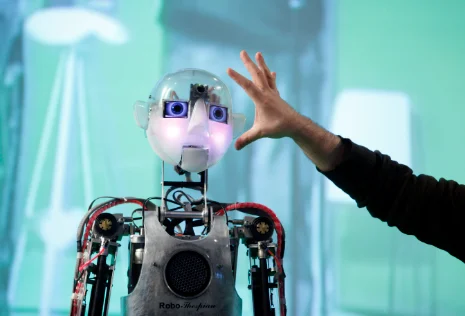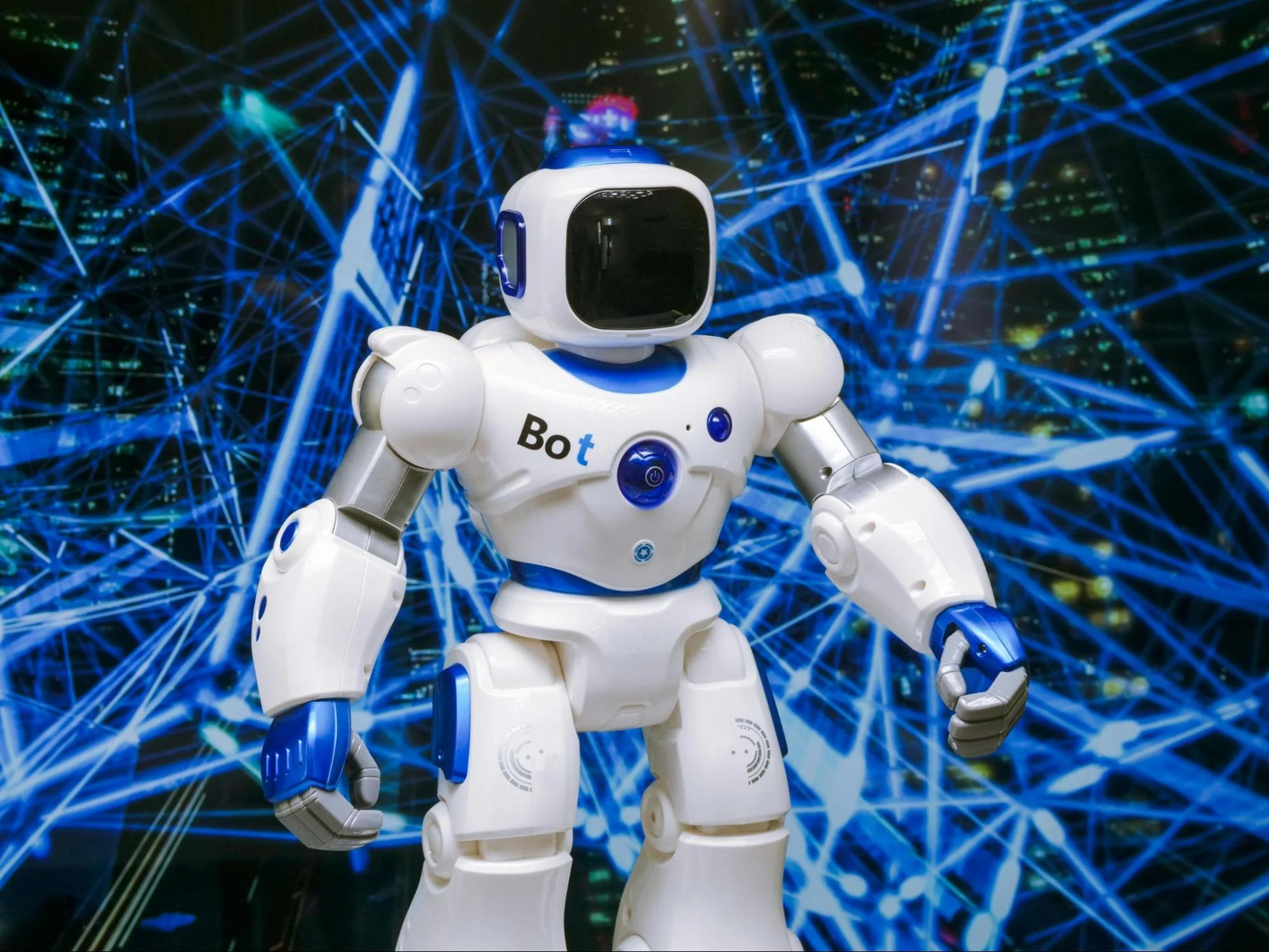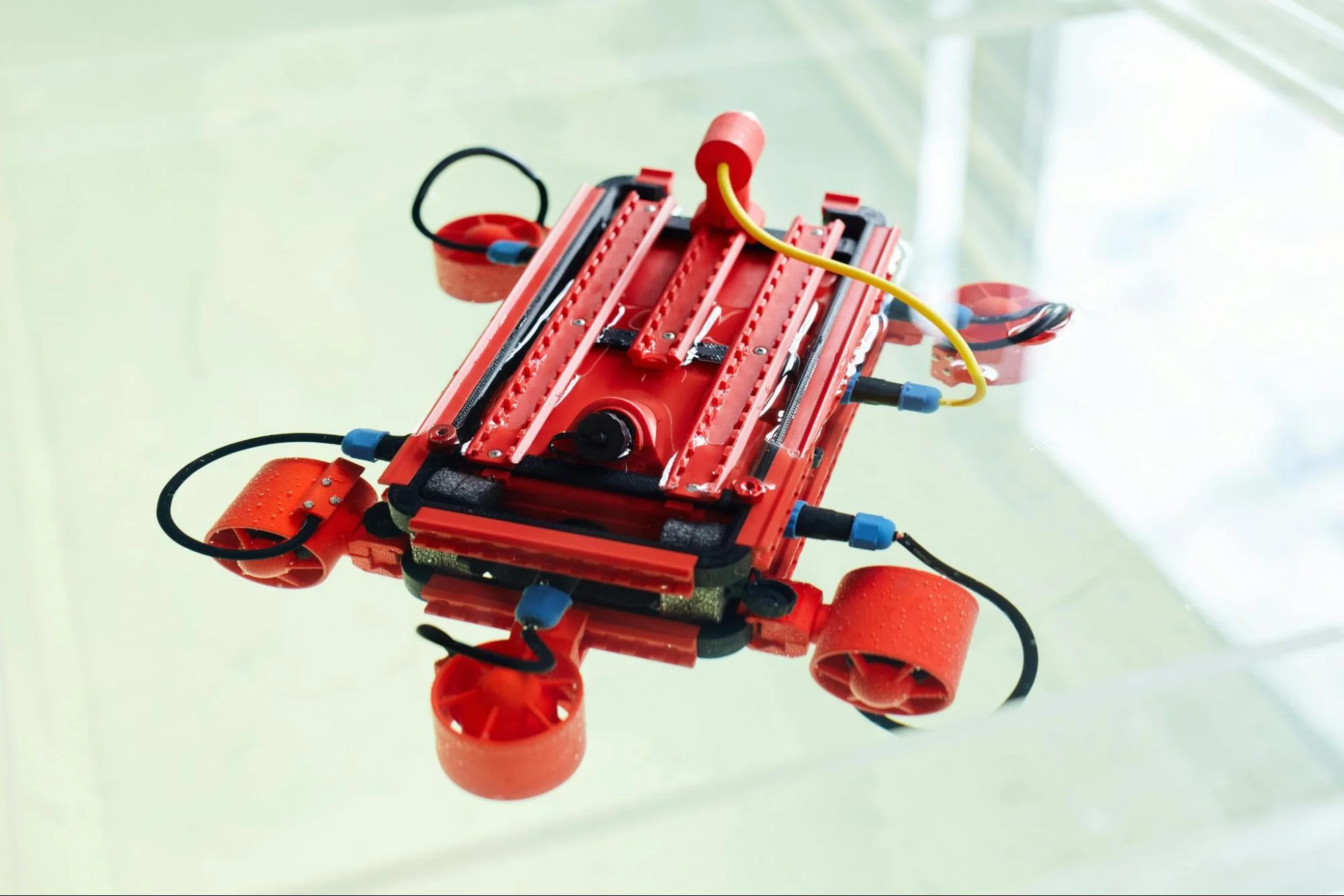
While today’s robots are impressive feats of engineering, they are limited by the capabilities of classical computers. Enter quantum robotics, a nascent field poised to take automation and artificial intelligence (AI) to unimaginable heights. The potential for quantum computing to revolutionize robot path optimization is enormous. As quantum computers grow in size, reliability, and power, they will be capable of addressing increasingly complex robot path optimization challenges. This advancement promises substantial enhancements in the efficiency and functionality of robotic systems across various applications.
What is Quantum Robotics?

In simple terms, quantum robotics is the application of quantum computing principles to robotics.
Quantum robotics is defined as “an emerging engineering and scientific research discipline that explores the application of quantum mechanics, quantum computing, quantum algorithms, and related fields to robotics,” in the book titled Quantum Robotics: A Primer on Current Science and Future Perspectives
Quantum computers harness the bizarre properties of quantum mechanics, such as superposition and entanglement, to solve problems that are intractable for traditional computers. This opens a treasure trove of possibilities for robots, granting them superior processing power, enhanced perception, and unparalleled decision-making abilities.
Recommended Reading: How To Get Started Building Your Own Robot
The Quantum Leap: How Quantum Robotics Will Change the Game

Let’s find specific areas where quantum robotics will have a profound impact:
1. Supercharged AI
Current AI algorithms struggle with complex, real-world scenarios. Quantum computers, however, can tackle these challenges with ease. This will pave the way for robots with true intelligence, capable of learning, adapting, and making real-time decisions in dynamic environments.
2. Unprecedented Sensor Processing
Imagine robots that can perceive the world with a nuance beyond human comprehension. Quantum algorithms can analyze vast amounts of sensor data (vision, LiDAR, etc.) with unparalleled speed and accuracy. This will empower robots to navigate intricate situations, perform delicate tasks, and operate in previously inaccessible environments.
3. Next-Gen Material Design
Did you know? The field of materials science is full of possibilities yet to be explored due to the sheer number of potential material combinations. Quantum computers can simulate material properties at an atomic level, leading to the discovery of revolutionary new materials with unique characteristics. These materials can then be used to build stronger, lighter, and more efficient robots for diverse applications.
4. Medical Marvels
Quantum robotics holds immense potential in the medical field. Robots equipped with quantum-powered AI could perform intricate surgical procedures with unmatched precision, minimizing human error and revolutionizing healthcare. Additionally, these robots could be used for drug discovery, protein folding simulations, and personalized medicine approaches.
5. Space Exploration Untamed
The harsh realities of space pose significant challenges to traditional robotic explorers. Quantum robots, however, could be the key to unlocking the secrets of the cosmos. With enhanced perception, decision-making, and radiation resistance, these robots could traverse uncharted territories, conduct complex scientific experiments, and even establish permanent outposts on distant planets.
Challenges and Considerations

While the potential of quantum robotics is undeniable, several challenges and considerations must be addressed to realize its benefits fully.
1. Technical Complexity and Cost
Constructing and maintaining functional quantum computers involves advanced technology that is both intricate and expensive. These systems require extremely low temperatures, precise control over quantum states, and sophisticated error correction techniques to function effectively. Scaling up quantum computers to handle real-world applications adds another layer of complexity and cost.
2. Ethical Concerns
The development and deployment of highly intelligent robots powered by quantum computing raise significant ethical issues such as Questions about job displacement, privacy, security, and the decision-making autonomy of robots need thorough examination. There is also the potential for misuse in areas like surveillance or autonomous weapons, necessitating stringent ethical guidelines and oversight.
3. Interdisciplinary Collaboration
Quantum robotics is an interdisciplinary field that requires collaboration between experts in quantum computing, robotics, artificial intelligence, and ethics. Bridging these diverse domains to create cohesive solutions is a substantial challenge but essential for progress.
4. International Cooperation
To ensure the responsible advancement of quantum robotics, international cooperation is crucial. This includes setting global standards, sharing research and resources, and creating frameworks for ethical considerations. Cooperation can help prevent a fragmented approach where different countries pursue conflicting agendas, potentially leading to ethical and security risks.
5. Regulatory Frameworks
Establishing robust regulatory frameworks that can keep pace with the rapid development of quantum robotics is essential. These frameworks should address safety, reliability, and ethical implications while fostering innovation. Governments and international bodies need to work together to create policies that balance these aspects effectively.
In conclusion, while the future of quantum robotics holds immense promise, addressing the technical, ethical, and collaborative challenges is crucial for its successful and responsible integration into society.
Recommended Reading: Why Should Your Kid Study Robotics Today?
The Road Ahead
Quantum robotics is still in its early stages, but the future looks bright. As quantum computing technology matures and merges with robotics, we can expect a paradigm shift in automation, AI, and technological innovation. From revolutionizing healthcare to unlocking the secrets of space, the possibilities are truly limitless. This exciting field has the potential to redefine our relationship with technology and shape the course of human history.
Stay tuned! As research in quantum robotics progresses, we can expect to see even more groundbreaking advancements in the years to come. This technology holds the key to a future filled with intelligent machines that work alongside us to solve the world’s most pressing challenges.
Want to make your child future-ready with Robotics? Moonpreneur offers a tailor-made program. Reserve a spot in our free 60-minute workshop today and introduce them to the amazing world of robotics and innovations!

























